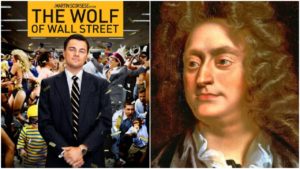
Opera Meets Film: Henry Purcell’s ‘King Arthur’ & Quaaludes In ‘The Wolf of Wall Street’
By David Salazar“Opera Meets Film” is a feature dedicated to exploring the way that opera has been employed in cinema. We will select a section or a film in its entirety, highlighting the impact that utilizing the operatic form or sections from an opera can alter our perception of a film that we are viewing. This week’s installment features Martin Scorcese’s “The Wolf of Wall Street.”
Martin Scorcese and opera? As you might remember from other features we’ve done on “The Age of Innocence,” “Raging Bull,” and “The Departed,” opera is very much a part of Scorcese’s “bag of tricks” in his filmmaking. He illuminates his characters or story through the use of the other Gesamtkunstwerk, but in “The Wolf of Wall Street,” he uses opera to just highlight a single moment.
In the sprawling epic about corruption on Wall Street and the financial world of the US, the film also illuminates the addictions that come with seizing power. Jordan Belfort and his associates, including Donnie Azoff, are at a party when Donnie decides to try Quaaludes. Belfort is about to explain to the audience what a quaalude or “Lude” is when suddenly Donnie starts feeling the effect. The camera cuts to a tight shot of him getting up in slow motion, all the while underscored by “What Power Art Thou” from Henry Purcell’s “King Arthur.”
The piece’s impact is twofold in the narrative, both on a sensory and thematic level. On a sensory level, the slow, detached ostinato in the strings gives the piece a sense of expansiveness, emphasizing the slow movement of Donnie. Moreover, the singing itself features melismatic phrasing with one syllable set to various notes. The twist, however, is that the detached phrasing in the voice also means that the syllables are themselves detached, giving the text a unique, almost incomprehensive, pronunciation. It is similar to how the film portrays the speech patterns of those under the influence of Quaaludes – incoherent. Thus in a way, we experience how it might feel to be drugged through Scorcese’s use of Purcell’s music.
But textually, the musical setting is of great importance. Here’s the start of the text for the aria that we hear clearly in the film: “What Power art thou, Who from below, Hast made me rise, Unwillingly and slow, From beds of everlasting snow!” Donnie rises in this scene under the influence of a drug, his sense of control completely lost. The text is ironic in the context of the film, given that the characters not only know the power that is exerting its influence, but they submit to it willingly.


